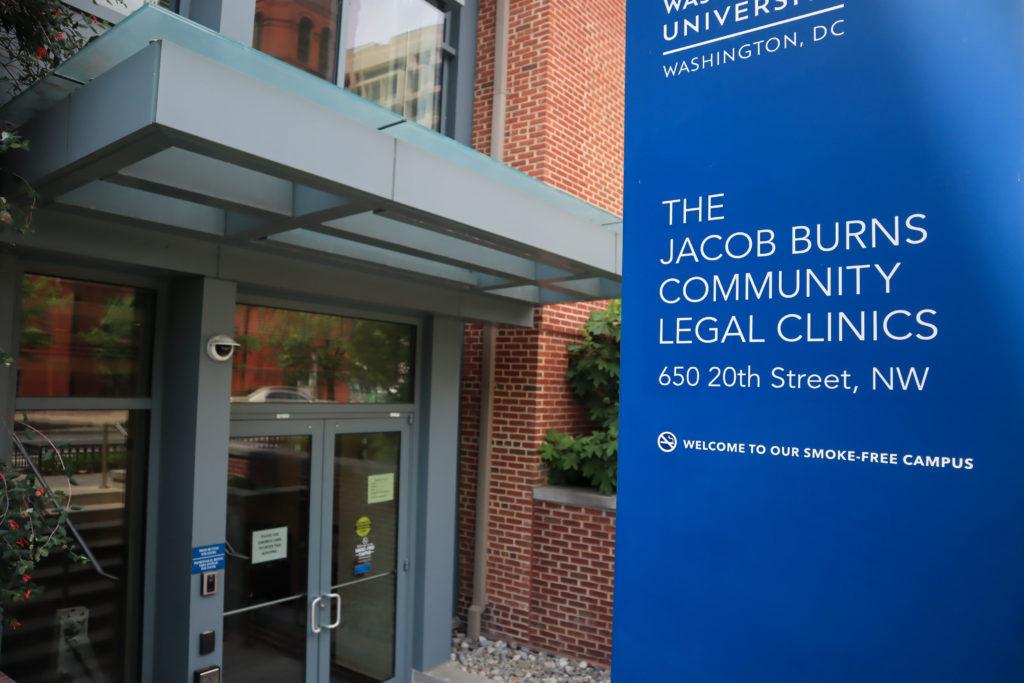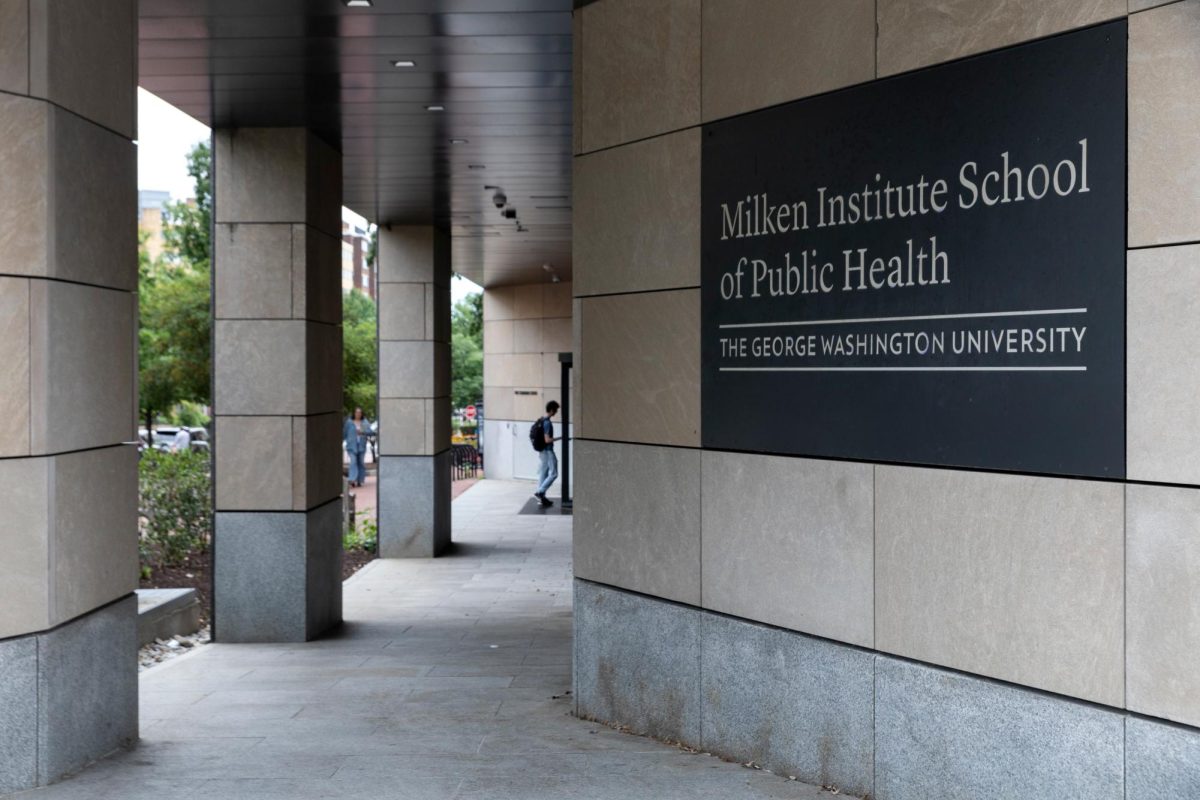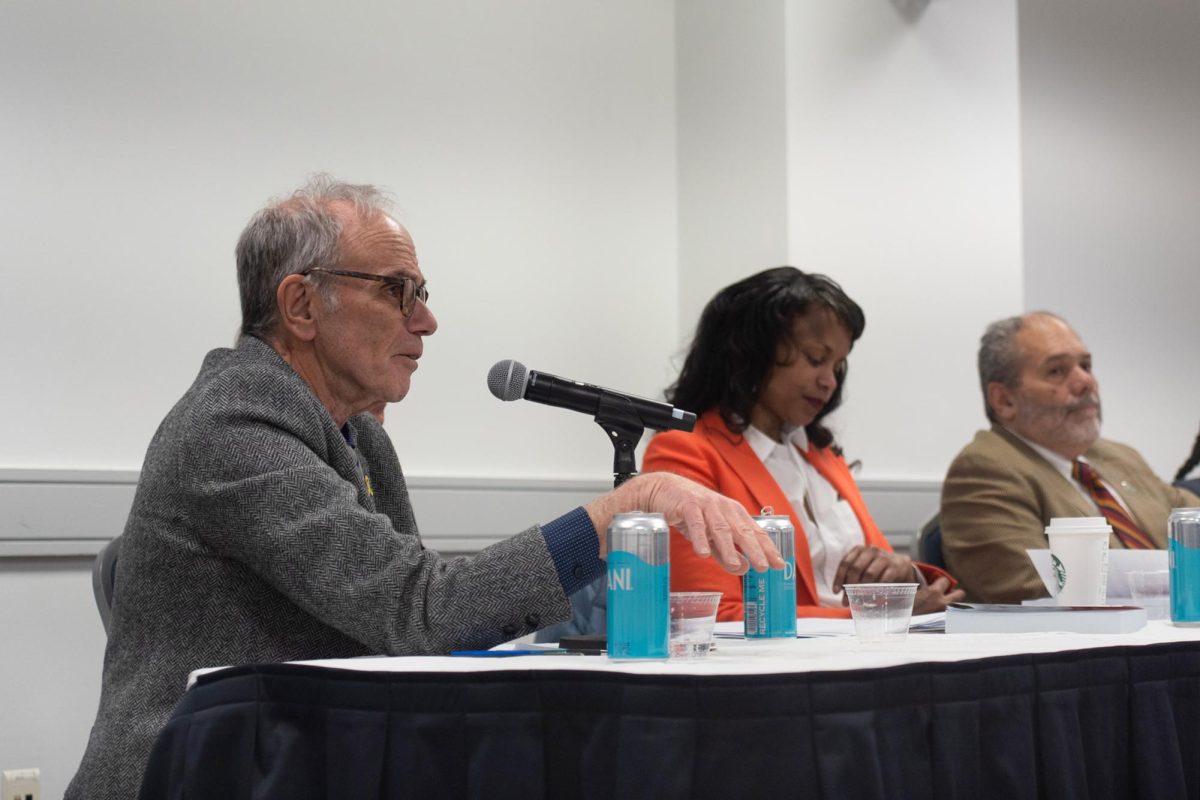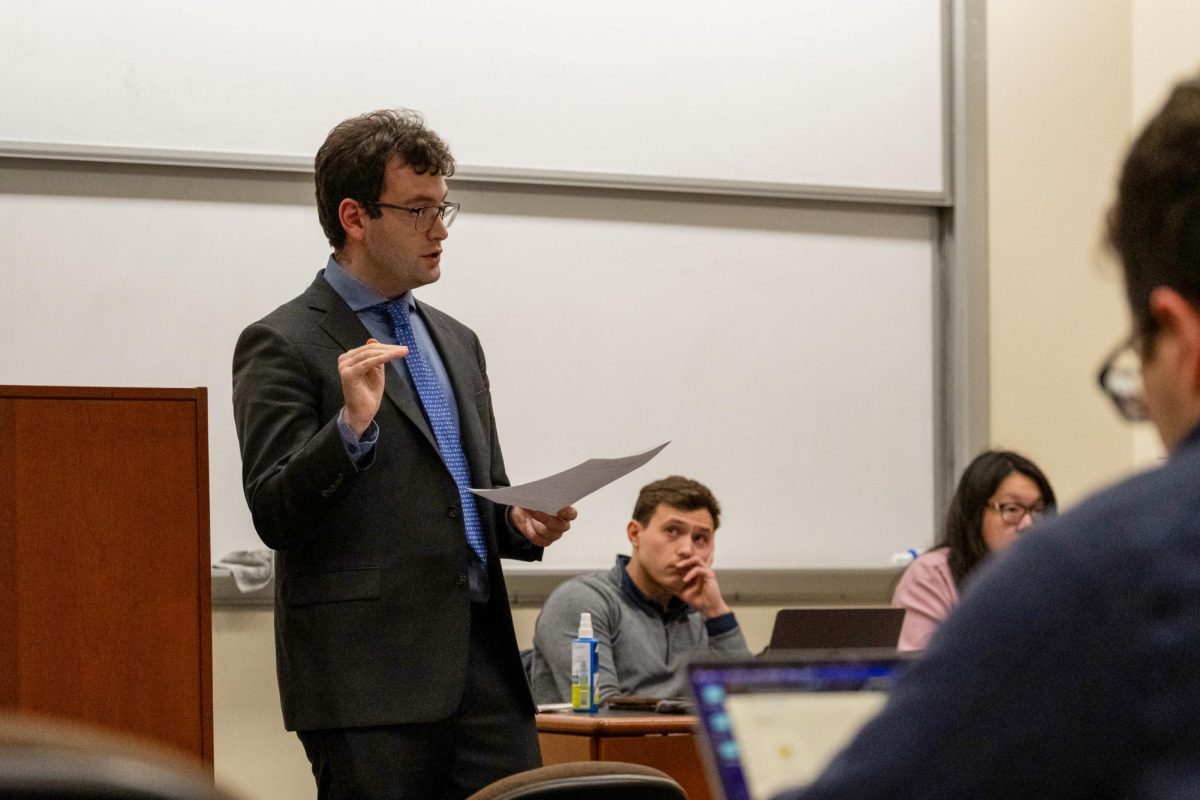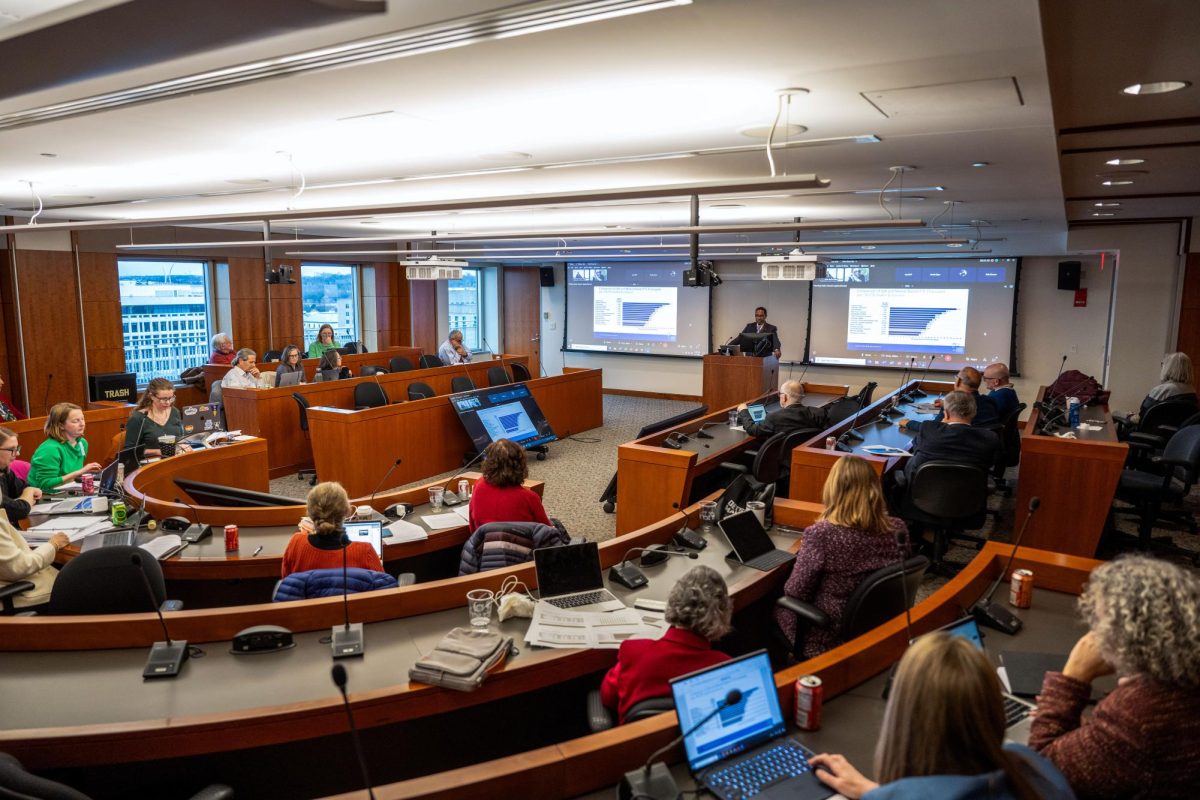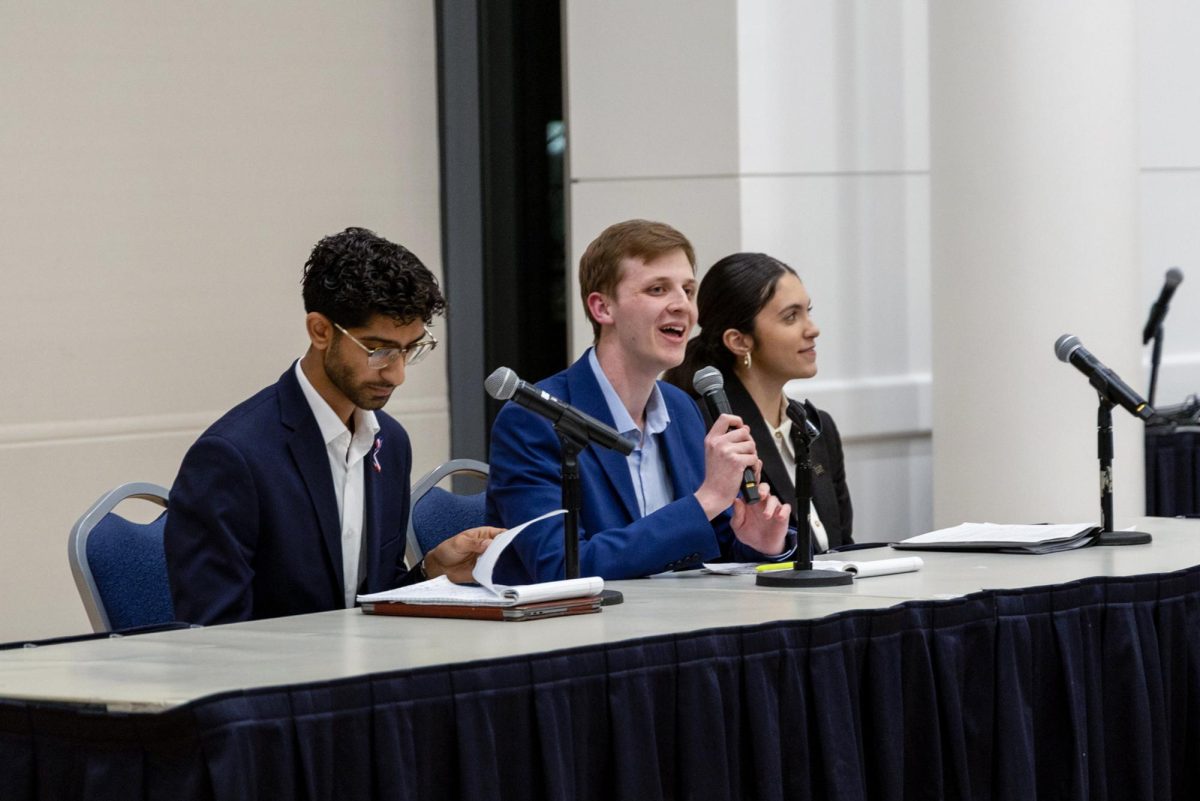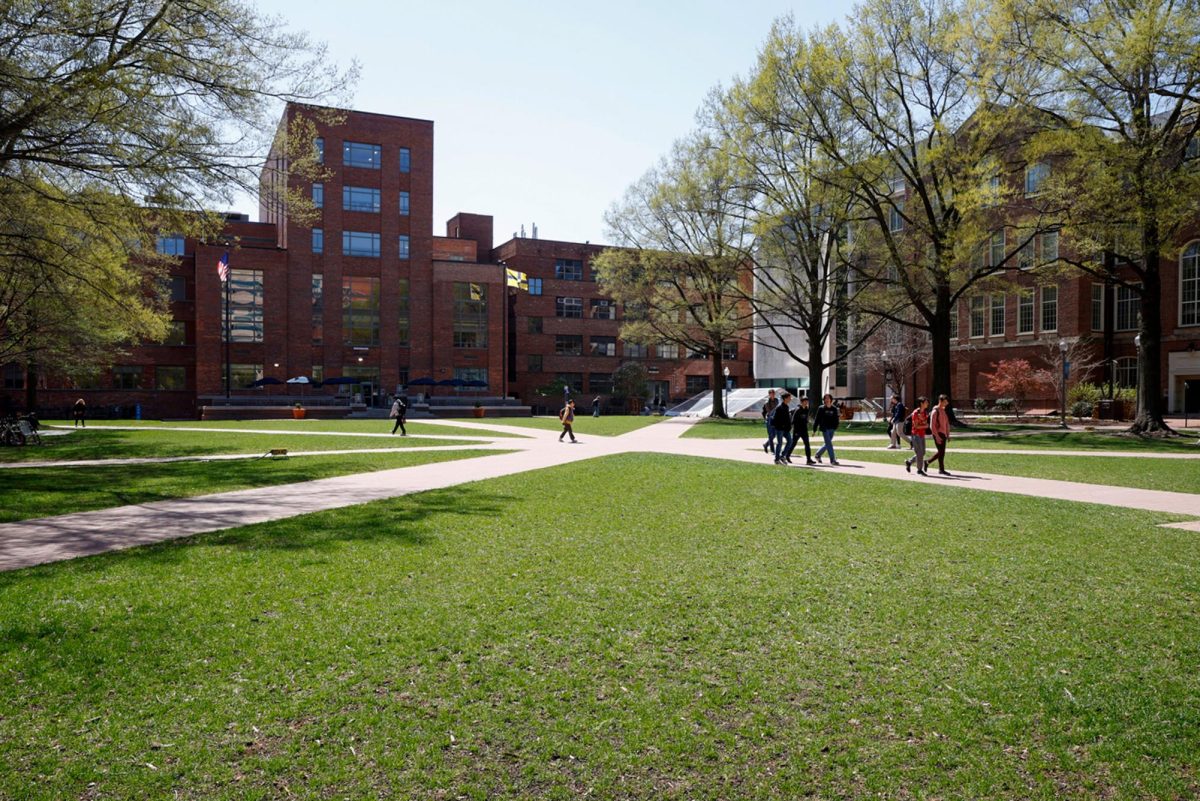A legal associate at the GW Law Immigration Clinic discussed the challenges asylum-seekers face in the U.S. during a virtual seminar Friday.
Paulina Vera, who earned a bachelor of arts from the Elliott School of International Affairs and her law degree at GW Law School, spoke about her experience representing asylum-seekers as the co-supervisor of the GW Law Immigration Clinic. Vera discussed the application process asylum-seekers must undergo, and the qualifications they have to meet to achieve asylum status at the seminar, which was hosted by No Lost Generation, an organization that advocates for displaced people globally and the Office of the Vice Provost for Research.
Vera said the clinic’s work focuses mainly on asylum cases that are before the United States Citizenship and Immigration Services or immigration court. She said while refugees have already been approved and have passed their security checks before entering the U.S., asylum-seekers must complete the entire immigration process from within the U.S.
Vera said although the asylum-seeker’s application process is slightly different due to where the applicant is applying from, refugees and asylum-seekers are in the same situation as persons who are unable or unwilling to return to their country due to fear of persecution.
Vera said persecution is defined as physical, psychological, emotional or sexual violence. She said for a person to achieve asylum status in the U.S., the persecution must be on the basis of the five protected grounds which are race, religion, nationality, political opinion or membership to a particular social group like the LGBTQ+ or disabled communities.
“We have to show the persecution, we have to show the why, we have to show which of the grounds it’s under,” Vera said.
Vera said the Executive Office for Immigration Review — which hears asylum claims — is part of the executive branch and under the Department of Justice, which oversees all immigration courts and not the judiciary branch as many believe. Vera said as the head of the Department of Justice, the Attorney General is therefore the “boss” of all immigration judges.
“Immigration law is inherently political because it is in the political branches of the government,” Vera said. “Immigration court systems are very much at the mercy of who’s the head of the executive.”
Vera said during the Trump administration, she faced many challenges due to the policies set by then-Attorney General Jeff Sessions. She said Sessions hand-selected cases to set a precedent making it more difficult to gain asylum in the U.S. by narrowing the criteria needed.
“Many of those decisions were trying to narrow the ability of folks to obtain asylum,” Vera said. “For example, there was a harmful case that came out trying to narrow individuals who are survivors of domestic violence from being able to obtain asylum.”
Vera said asylum cases can eventually reach federal circuit courts after appealing from the Board of Immigration Appeals.
Vera said since each circuit court represents a different region of the U.S., circuit courts can have “different interpretations of the law” and therefore “discrepancies” in how cases are decided. She said the fourth circuit, which represents D.C., “tends to be very helpful for noncitizens” compared to other circuits, which Vera said tend to be less accommodating.
Vera said separate challenges arise when the persecution faced by individuals in their home country is not by the government but private third-party individuals. She said asylum-seekers then have to prove their government is “unable or unwilling” to provide protection from the third parties.
Vera gave the example of asylum-seekers from El Salvador struggling to apply for asylum due to current large crackdowns on gangs by the government and said trial attorneys are using this to claim the government is willing to protect its citizens. Vera said she and other immigration attorneys concede that the government may be willing to protect its people but has proven it is unable to in the past.
“The test is unable and unwilling,” Vera said. “They don’t have the resources, gang members are still at large, especially folks in leadership roles.”
Vera said asylum-seekers are sometimes unable to provide corroborating evidence when seeking asylum status. When fleeing their home country, they are focused simply on escaping the threat they face, rather than ensuring they have collected all documentation necessary to enter another country, she said.
“Their immediate concern is their safety, the safety of their family,” Vera said. “They are not thinking, ‘I should get a picture of my persecutor so that in three years, when an immigration judge is asking me about this, I have proof,’ that’s not their concern.”
Vera said she represented a Muslim Black man from Mauritania who was arrested and tortured by the Mauritanian police three times due to his race and outspokenness against racism in Mauritania. She said the immigration judge hearing his case was still skeptical after the man’s testimony that the Mauritanian police forced him to delete all of his Facebook posts that were in opposition to the government.
“The immigration judge has an issue because he’s saying, ‘well, why don’t you have the Facebook post?’” Vera said. “He has concerns now about my client’s credibility because my client doesn’t have that particular proof to prove the things that he’s saying.”
In these instances, Vera said she has to be “creative” with accumulating evidence. Vera had their client’s doctors submit a report describing his PTSD and generalized depressive disorder as proof that he will not be able to testify in the manner that “you consider to be normal.”
“At the end of the day, immigration law is about people and that’s what we need to remember,” Vera said. “Unfortunately, the way our asylum system is set up in the United States, I think sometimes that premise is lost.”


